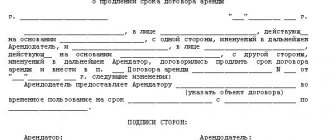Documents for applying for a job for a disabled person
The conclusion of an expert medical commission, as well as certain external signs, are proof of the disability of the employee being hired. But if the second sometimes cannot be hidden, then the first is not necessary to present during employment. The exception is cases when the position of interest directly involves a particular health condition.
According to the Labor Code of the Russian Federation, to conclude an employment contract with a disabled person, the following documents will be required:
- passport (any document that proves your identity will also do);
- employment history;
- certificate of compulsory pension insurance;
- military ID;
- document confirming education and qualifications;
- information about the presence/absence of a criminal record.
"Part-time work" for disabled people
Accountants quite often have questions related to how to register a disabled person for part-time work.
Can an organization hire a disabled person part-time (he has a third disability group)? Yes, an organization can employ a disabled person part-time, because The third disability group is classified as “working”. The criterion for determining the third group of disability is a person’s health impairment with a persistent moderately severe disorder of body functions, caused by diseases, consequences of injuries or defects, leading to a limitation of the ability to work of the 1st degree. The first degree means that the citizen, due to health problems, has experienced a decrease in qualifications and is unable to continue working in his main profession, but he is able to perform other types of work of lower qualifications. Other job requirements can be found in the “Individual Rehabilitation Program for Disabled Persons.” The legislation of the Russian Federation does not establish any prohibitions on working part-time (except for medical indications) for disabled people.
For medical reasons, a disabled person is allowed “any light type of work without physical stress and prolonged standing, with a reduced working day or week.” Can an organization employ this disabled person on a part-time basis at 0.5 times the rate (working week 20 hours)? Or do you also need to shorten your working week if you have a part-time job? The duration of a part-time worker’s working hours cannot be regarded as reduced working hours. The fact is that reduced working hours imply a reduction in the full standard of working hours for a number of categories of workers, incl. disabled people (Article 92 of the Labor Code of the Russian Federation). That is, they talk about reduced working hours in relation to “main” employees, and not to part-time workers. A part-time worker must already work no more than half the working time during the accounting period (Article 284 of the Labor Code). So a part-time worker always works less than the “main” employee. Therefore, it is permitted to employ a disabled person on a part-time basis with a 20-hour work week.
Procedure for registering a disabled person for work
A person with a disability can:
- find a vacancy on your own;
- take directions from the employment center.
In the first case, a personnel specialist must check whether the desired vacancy is compatible with the physical capabilities of the applicant, carefully study the existing contraindications and make a competent decision.
If the applicant is referred by the employment center, the employer is obliged to draw up an employment contract, regardless of his own desire/unwillingness, which is related to the quota. In case of unlawful refusal, the employer will be reprimanded and fined.
If the required documentation package is available, we begin to draw up an employment contract. The algorithm implies:
- writing an application;
- preparation of contract;
- familiarization with special instructions, acts, agreements and annexes;
- registration of the T2 form and personal file;
- making a special entry in the work book.
Peculiarities of applying for a job for different disability groups
Each employee with a disability indicates their level of ability to work in special documents. Only a special mark indicates complete disability. However, the employer should be aware that there are no “non-working” disability groups in any legislative act.
Disabled people of the first and second groups are accepted for a rate of no more than thirty-five hours per week.
Disabled people of the third group work on a full schedule (Federal Law No. 181-FZ).
Working conditions
During the hiring process, it should be taken into account that, according to the law, a disabled person needs to be provided with preferential working conditions and additional guarantees. A link to the main regulatory documents is presented in Article 224 of the Labor Code of the Russian Federation. Typically, responsibility for these issues lies with the HR department or occupational safety engineer. Let us focus only on a number of recommendations and indications regarding the required working conditions, which are prescribed in the rehabilitation program. For example, recommendations on permissible levels of vibration, noise, infrasound, dust, electromagnetic radiation, etc.
The working conditions of disabled people (pay, work and rest schedule, duration of annual paid and additional leave, etc.) should not worsen their situation in comparison with other employees (Law No. 181-FZ, Article 23).
Remember that in terms of organizing work and rest, disabled people are entitled to a number of benefits provided for by current legislation:
- the duration of working hours for people with disabilities of groups I and II should not exceed 35 hours per week (Labor Code of Russia, Article 92 part 1);
- the duration of daily work for a disabled person is prescribed in the medical report (Labor Code of the Russian Federation, Article 94 part 1);
- People in need of enhanced social care may be involved in night work, weekend work and overtime work with their written confirmation, provided that such work is permissible for health reasons (Labor Code of the Russian Federation: Article 96 part 5, Article 99 part 5 and article 113 part 7);
- Working disabled people are entitled to leave without pay for up to sixty calendar days a year (Labor Code of the Russian Federation, Article 128, part 2) and annual leave for 30 calendar days.
Peculiarities of drawing up an employment contract when hiring a disabled person
In accordance with Federal Law No. 181-FZ, when hiring a disabled person, the employment contract must include the following:
- rest clause,
- working hours schedule;
- take into account reduced working hours for disabled people of the first and second groups.
It should also include a clause that a disabled person’s salary is calculated in full, regardless of the hours worked (Articles 92, 94, 96 of the Labor Code of the Russian Federation).
In addition, an employee with a disability has the right to refuse to work on weekends and holidays, which must also be specified in the contract.
Information about special insurance for the disabled should also be added.
The possibility of taking leave without pay for a period of not fourteen, like other employees, but for sixty days is also indicated.
The contract also states that paid leave can be taken for a period of thirty days (calendar).
Differences in hiring for persons with I, II, III disability groups
The disability group depends on many factors: the severity of the disease, health status and degree of disability.
The employer should remember that “non-work” groups have been cancelled.
, the degree of ability to work is recorded in his IPR . In order to consider a person completely incapable of any work activity, his IPR must contain the appropriate mark.
the highest degree of disability, can be employed Since it is believed that they are able to perform certain types of basic work . Therefore, it is more important for the employer to pay attention to the degree of limitation of the ability to work, and not to the disability group itself.
When hiring disabled people of groups 1 and 2, regardless of their degree, the working week is set to no more than 35 hours . For group 3, the Labor Code does not provide for such relaxations.
But at the same time, the IPR may contain special conditions and recommendations for the provision of certain benefits, which the organization must adhere to. The personnel officer should carefully study the documents of the disabled person.
What to do if an employee becomes disabled
For an employee who becomes disabled during working hours while at the workplace, there are several options for further developments:
the most unfavorable is receiving the first group of disability. In fact, this implies complete loss of ability to work. If there is a special mark that confirms this fact, the employer must fire the subordinate. In this case, payment of compensation is required.
- in case of receiving the second and third disability groups, the employee can continue to work. In this case, his own desire is taken into account. In this case, the employer must organize appropriate working conditions or transfer the employee to another position.
Important: If an employee who has become disabled refuses to continue working, he can be dismissed by agreement of the parties or at his own request.
Salary of an employee with a disability
The salary of an employee with a disability is paid in accordance with the local regulations of organizations that regulate wages.
Company representatives need to know the following about calculating salaries for employees with disabilities:
- disabled people of the first and second groups, as well as disabled people from childhood, have the right to a monthly deduction, the amount of which is 500 rubles.
- disabled people of some categories can receive a monthly deduction of three thousand rubles.
- disabled people are entitled to discounts on insurance premiums.
Responsibilities of employers regarding quotas of jobs for people with disabilities
The state has legally obligated employers to provide jobs for people with disabilities. This is done within quotas. If the company employs more than 100 people, then 2-4 percent of the number of jobs should be allocated for people with disabilities. For small organizations with less than 100 workplaces – 3%. Regional authorities have the right to set their own quotas in the territory, but not less than those prescribed by federal legislation.
Having such a quota, the employer is obliged to create appropriate jobs, ensure working conditions and provide information about vacancies to the employment center.
We have already written about how a disabled person can register with an employment center.
The employment center is responsible for compliance with these requirements; it is obliged to control enterprises and organizations in the sponsored territory. If employers violate quota conditions, they may be fined. If jobs are not allocated, the fine for the manager is from 5 to 10 thousand rubles, if a disabled person is refused employment for such a vacant position - 5-10 thousand rubles, if information about vacancies is not provided to the Central Employment Center - 3-5 thousand rubles.
What should an employer do when hiring an employee with a disability?
As is clear from the above, employers are often against concluding employment contracts with disabled people. And the state, in turn, is obliged to provide them with jobs. Therefore, in order to increase their chances of employment, the state provides organizations that are ready to hire people with disabilities with certain payments and benefits.
For example, for disabled people, different, lower amounts of payments to the pension fund are provided. The same thing works with the social security fund.
Required documents for employment
In order to hire a disabled person, it is necessary to obtain from him certain documents that are not required from other categories of workers.
These include:
- Certificate confirming the status of the disabled person. It must be drawn up on a strict form approved by the Ministry of Labor of the Russian Federation in 2004 by Resolution No. 41. Certificate No. 1503004 contains information about the established disability group and the degree of disability.
- Individual rehabilitation program for disabled people (IPRI). The document also has a strict form and contains requirements for working conditions that must be observed by the employer hiring him.
The question often arises about whether it is mandatory to present these documents when applying for employment.
The list established by Part 1 of Article 65 of the Labor Code of the Russian Federation does not contain them. Consequently, a disabled person makes the decision to provide them to their employer independently.
Attention! The employer has the right to request certificates about the health status of a candidate for a position for which it is important (Part 2 of Article 65 of the Labor Code of the Russian Federation). A clear example is police recruitment.
In addition to special certificates, disabled people provide the HR department with all the generally required documents required when applying for a job. On their basis, the most important act is drawn up - the employment contract.
What documents are needed when applying for a job?
Good to know! Sometimes disabled people triple their health status before signing an employment contract, fearing that they will be refused a job. In this case, the employer is obliged to supplement the concluded contract with increased guarantees. Therefore, it is better to try to unobtrusively find out in advance about the possible health limitations of the applicant for the position.
Features of concluding an employment contract
The main document regulating the working conditions of a disabled person must reflect not only the general conditions of his work, but also the benefits provided by law.
For example, if he belongs to the first or second disability group, he is entitled to a reduced duration of work - within 35 hours per week instead of the usual 40 hours (Part 1 of Article 92 of the Labor Code of the Russian Federation and Part 3 of Article 23 of Law No. 181).
Disabled people have privileges on vacations in the form of their extension:
- At least 30 days are required for the main annual vacation;
- for leave without pay – up to 60 days per year.
According to the general rule established by Article 96 of the Labor Code of the Russian Federation, citizens of this category cannot be involved in night and overtime work.
This can only be done if two conditions are simultaneously met:
- With the written consent of the employee.
- Unless there is a medical certificate prohibiting their implementation.
When involving disabled people in overtime or night work, it is necessary to familiarize them with their signature on the right to refuse.
These rules also apply to work on weekends and holidays. A ban on such work may be established in the IPRI.
An employment contract is concluded upon hiring no later than three days from the date of commencement of work. Based on the drawn up and signed agreement, an employment order T-1 is prepared and a personal card is filled out.
If required, a disabled employee writes an application for employment.
When and how to write a statement, read here.
Quotas for persons with disabilities
The legal status of this category of workers in Russia is determined by legislative acts, the main of which is the Federal Law on their social protection No. 181, adopted back in 1995. It guarantees the employment of citizens of this category by government bodies of all levels of government (Article 20), obliging employers to hire citizens with disabilities.
At the level of federal subjects, quotas for the employment of people with disabilities and minimum restrictions on organizing the number of specially equipped workplaces for them can be determined.
This is done only for large companies with a staff of over 100 people (Article 21 of Law No. 181). The norm can vary within 2-4% of the total number of personnel.
Administrative liability is provided for violation of the established quota, as well as in the event of an employer’s refusal to hire disabled people.









